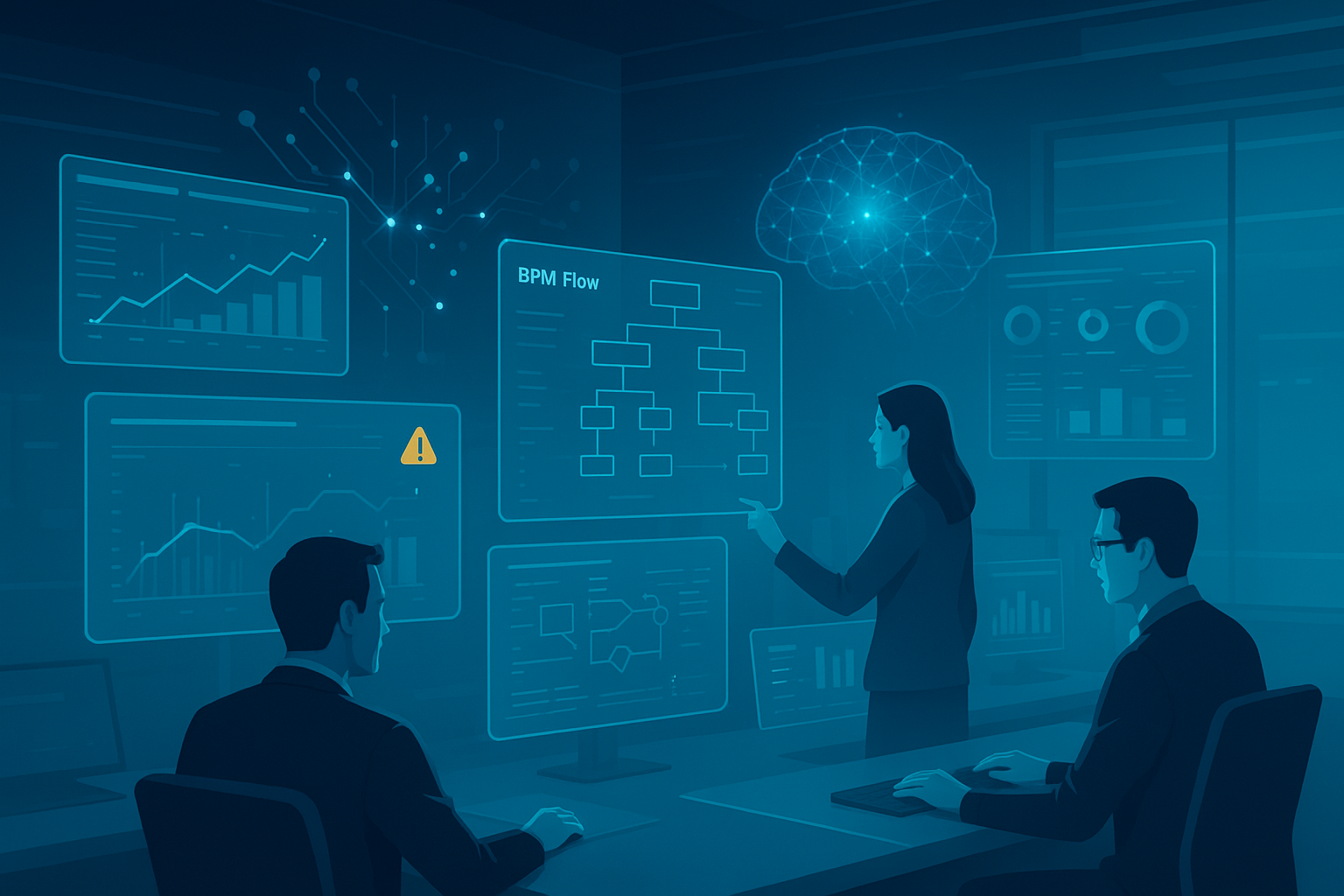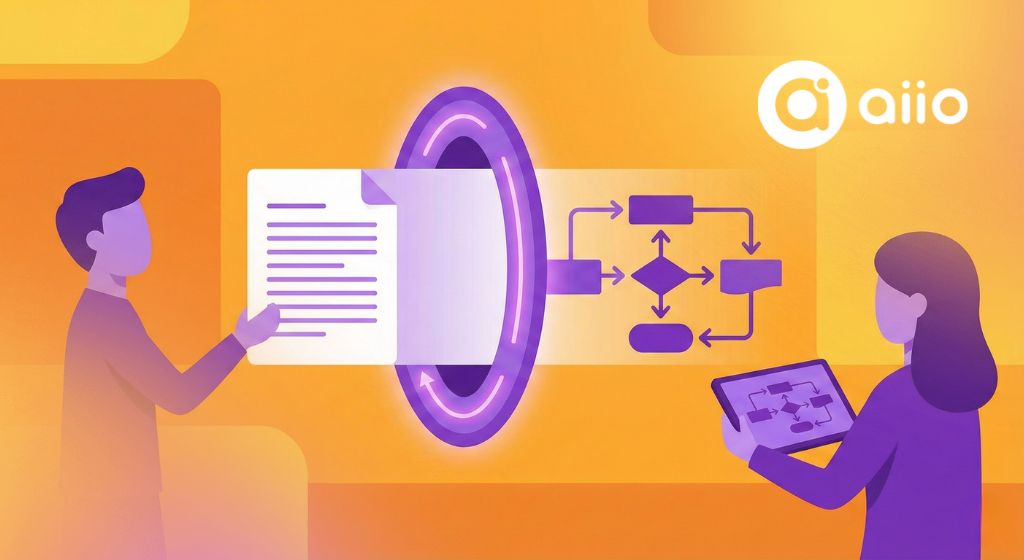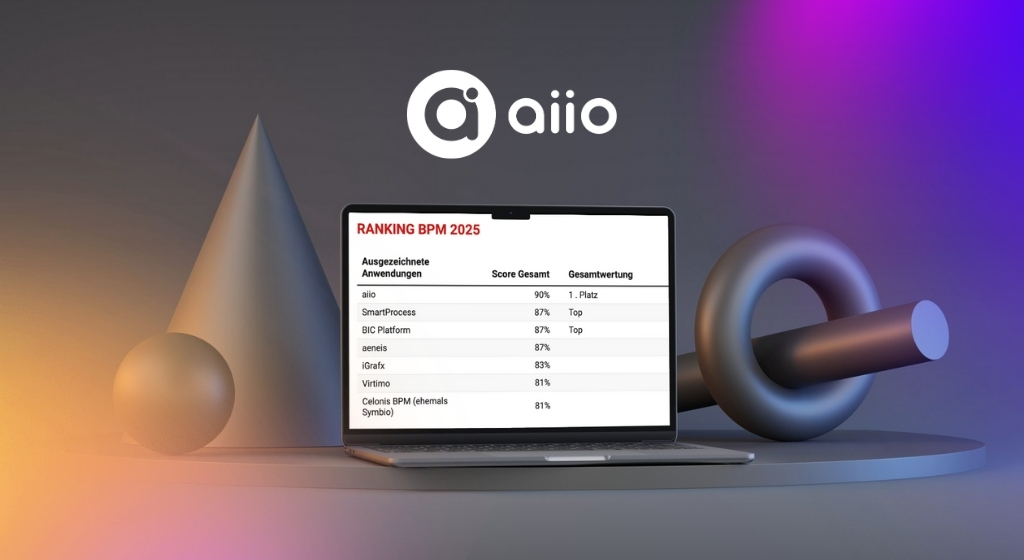Methods of organizational development - aiio and the "wisdom of the crowd"

Several years ago, Gartner formulated the recommendation in its research paper "BPA for the Masses: Is It Real?"1 to involve many more employees in process modeling and analysis who have a less technical view of process descriptions. In working with this user group, they also note a much higher benefit from tools whose purpose is specifically not the direct execution of processes, but whose focus is on getting to know, understanding, and analyzing the organization.
A similar development is seen in a publication by Forrester2, which recommends involving the "Citizen Process Experts" in process design and analysis, instead of relying exclusively on the use of process optimization specialists who are not part of the organization concerned and can therefore contribute little local knowledge.
Completely independent of tools and technology, authors such as James Surowiecki, Johannes-Paul Fladerer, and Ernst Kurzmann deal in various publications with the question of how to tap into the “Wisdom of the Crowd” – including within companies and other organizations where the goal is to work collaboratively towards a common goal. What conditions should ideally be met to achieve better results on average from many individual contributions than the best members of the group could achieve individually?
aiio is also concerned with drawing on the organizational knowledge from the minds of all those who are part of the organization every day and can contribute to its design from different perspectives, and wants to make this knowledge available.
Solutions: The collective organizational development process
James Surowiecki argues in his book3 that the accumulation of information in groups leads to joint group decisions that are often better than individual participants' solutions and identifies four conditions that must be met for the “wisdom of the crowd” to take effect:
- Diversity of opinion: The people who are asked should have their own information on the topic and contribute different perspectives,
- Independence: The people who are asked should be able to answer without being influenced by other opinions in their environment,
- Decentralization: The people who are asked are able to specialize and draw on locally available knowledge, and
- Aggregation: There is some suitable mechanism available that bundles the individual judgments into a collective decision.
These conditions have been incorporated into the genetics of aiio:
- The process manager should not conduct interviews with process participants and pour his understanding of what he has heard into a model. With aiio, he can have different process participants describe or comment on the same process independently of each other and decentrally from their respective perspectives and with the inclusion of their respective local knowledge.
- aiio acts as a neutral aggregator of information and enables its consolidation into a result model, which is ultimately a better basis for decision-making the more diverse the existing perspectives under which it has been viewed and described. This model, in turn, should be available to as many actors in the company as possible as an information hub.
In order to practically succeed in decentralizing the process of information gathering in order to include as many different perspectives as possible, process management must be quasi “democratized”. The aim should be to make use of the otherwise “tacit knowledge” of individuals who are close to problems and can probably contribute well to finding solutions – but are otherwise not asked. However, this requires that practically every respondent must be able to use aiio without training in the software. That's why aiio is deliberately kept very simple and focuses on the process of collecting organizational information. aiio deliberately avoids overly technical description languages and complex user interfaces that can hardly be used without thorough training. aiio is both a tool and a method. It allows each individual to increase the total amount of information available in the system with his or her specific and local knowledge and at the same time bundle this information into a collective whole. This enables value-creating design decisions. Through a lightweight approach, aiio will also transform the process of information gathering and updating into a continuous process through regular questioning, feedback and verification. The organizational model is constantly updating itself as a result.
With aiio, “BPA for the Masses” becomes more real than ever, and practically every individual, within the framework of the information and perspectives available to him, becomes a “Citizen Process Expert”.
Sources:
1 Gartner, BPA for the Masses: Is It Real?, G00201280
2 https://www.forrester.com/blogs/is-your-organization-ready-to-democratize-its-automation-strategy-with-citizen-process-expertise/
3 James Surowiecki: The Wisdom of Crowds. Why the Many Are Smarter Than the Few and How Collective Knowledge Can Benefit Our Economic, Social, and Political Action, Bertelsmann, Munich, 2005, ISBN 3-570-00687-5
Don't hesitate, ask directly
Please use our contact form. Our team will get back to you as soon as possible.





